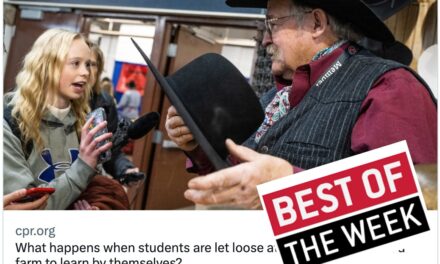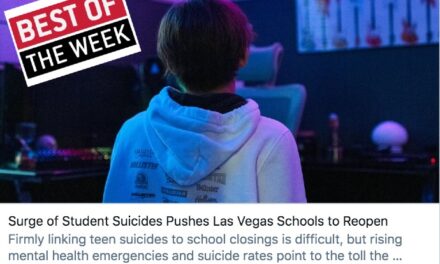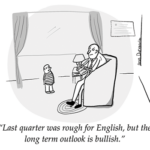Five local and regional standouts, four national all-stars, and four teams all doing great work this spring.
It was a ton of fun highlighting favorite bylines, outlets, and education teams last spring. Readers seemed to like it, too. So we’re doing it again for 2019: highlighting education reporters, outlets, and education teams that seem to be having particularly good years, doing their best work, or are otherwise on the rise.
As you’ll see, many of the names and stories come from The Grade’s best of the week newsletter, which you should already be subscribed to. But there are also a few surprises. Where possible, I’m including the names of the relevant editors.
Feel free to skip to the bottom to get updates on last year’s favorites. Enjoy!
5 LOCAL AND REGIONAL BYLINES

SONALI KOHLI, Los Angeles Times: Kohli’s been on my radar since at least 2017, when she wrote an unusually well-reported piece about a foiled school shooting. But this past year has been a big year for her, including not only some great work as part of the paper’s teachers strike coverage — see for example How the LA teachers strike is different, co-written with Howard Blume — but also her own big project, Surrounded: Killings near school, and the students left behind, an intense piece about the effects of violence-plagued communities on students. She’s got a strong, clear voice that comes through in her writing, and her story choices and reporting add insight and energy to the education team. Kohli also shared some invaluable thoughts about secondary trauma and self-care for journalists you should read. Her editor is Nita Lelyveld.
ELIZA SHAPIRO, New York Times: A repeat from last year’s favorites, Shapiro continues to be the epitome of a reporter on the rise, now having moved over from Politico NY to the NYT Metro section. A thorn in the side of City Hall and the local DOE, Shapiro is aggressive and critical-minded without regard to ideology. Some examples of Shapiro’s best work include New York Knew Some Schools in Its $773 Million Plan Were Doomed, Why Black Parents Are Turning to Afrocentric Schools, and last week’s much-read Only 7 Black Students Got Into Stuyvesant. This week, she wrote a fascinating and insightful look back at the long history of racial segregation in NYC schools, Segregation Has Been the Story of New York City’s Schools for 50 Years. I can’t wait to see what she does next. She’s edited by Dodai Stewart.
JENNY ABAMU, WAMU Public Radio: It’s been a great pleasure seeing Jenny Abamu get off to such a great start at WAMU after coming over from EdSurge in July. In just a very short time, and with competition from the Washington Post and other outlets, she’s already established herself as one of the best local education reporters in the region. Three of my favorites of her recent work are Debate Over Charter School Transparency Rooted In D.C.’s Struggle For Local Governance, What Data On The Racial Divide In Schools Says About The Washington Region, and The Public School With The Highest Attendance Rates In D.C. Is Empty Most Of The Year. Her most recent story about under-reported seclusion and restraint practices in Fairfax has been a big one. Abamu has energy and smarts for days. She’s the real deal. Her editors are Jeffrey Katz and Carmel Delshad.
ELIZABETH HERNANDEZ, Denver Post: Though technically a general assignment reporter at the time, Hernandez jumped into covering the Denver teachers strike and did a strong job with pieces like Denver teachers, district discord rooted in ProComp bonus system, and Denver Public Schools teacher strike: $136,000 spent on lesson plans. Her best may be How an all-night negotiation ended the district’s first strike in 25 years. She was recently assigned to the higher education beat, and her paper is going through a slew of layoffs, but I’m fairly confident we’re going to see more strong work out of Hernandez in the near future. She’s edited by Matt Sebastian.
AVI-WOLFMAN-ARENT, WHYY Philadelphia: There are at least two standout stories Wolfman-Arent has produced in recent memory, both of which centered on parents: The first, Kicked Out, is a sharp series exploring some districts’ efforts to expel families who don’t live in the district. The second, Meet the ‘crazy’ moms saying one of Pa.’s top-rated school districts can’t teach reading, focuses on emerging efforts by some parents in affluent suburbs to press school officials to rethink reading instruction. But Wolfman-Arent isn’t just a stellar storyteller. He shows his chops telling policy-heavy stories with pieces like Pennsylvania ditches school scoring, but will parents? And again, parents are at the center of the story. His editors include Kevin McCorry and Katie Colaneri.
Last year’s local and regional favorites were Bethany Barnes (The Oregonian), Mario Koran (Voice of San Diego), Linda Lutton (WBEZ Chicago), Ben Felder (The Oklahoman), Eliza Shapiro (Politico NY), Jessica Calefati (CALmatters).
4 NATIONAL BYLINES

EMILY HANFORD, APMReports: Nine months after it first aired, Hanford’s blockbuster audio documentary, Hard Words, continues to resonate with educators, parents, and education reporters nationwide. The hour-long documentary, featuring Bethlehem, PA, schools, is a standout piece of journalism including research, politics, and real-world implementation. A surge in coverage of reading instruction inspired in part by the documentary includes WXPR’s Kids with Dyslexia Struggle as Wisconsin Considers First Dyslexia Legislation, Chalkbeat CO’s Concerned about reading instruction, state cracks down on teacher prep programs, and the WSJ’s Schools Seen as Falling Short in a Pillar of Teaching Reading. Not many education journalists can claim to have had this kind of impact. She’s edited by Catherine Winter. Chris Julin and Dave Mann edited Hard Words.
MORIAH BALINGIT, Washington Post: Maybe it’s the extra time she’s logged on the national beat. Maybe it’s the addition of Laura Meckler to help cover it. But there’s little argument that Balingit is doing some great work these past few months, including smart big-picture pieces like Midterms test the durability of the teacher uprising and closely reported, deeply human stories like In Paradise, Calif., schools struggle to rebuild from the ashes. Tired of affirmative action stories that “mostly centered on wealthy East Asians,” Balingit just penned an impressive story centered on Hmong refugees and her Filipino father: Does affirmative action help or hurt Asians who don’t fit the model-minority stereotype? The Post’s education editor is Stephen Smith.
SARAH CARR, The Teachers Project at Columbia University: Pretty much everything Carr writes and does is worth reading or listening to, but her first-person reflection, What becoming a mother taught me about the education beat, has to be among the most unusual and powerful things she’s ever written. That’s far from her only recent accomplishment. She’s also the force behind The Teacher Project’s “What My Students Taught Me” podcast, including a recent series of segments in partnership with KPCC LA and another with the Texas Standard. Though she mostly edits these days, she still finds time to write her own stories. Her most recent piece is a thoughtful review of a book about the racism behind New Orleans city planning.
ERICA GREEN, New York Times: A repeat favorite from last year, Green’s presence on the national education journalism scene is a consistent pleasure. No small part of that is that the journalism she produces continues to be so impressive, whether it’s breaking news or enterprise writing. Her work is just so accurate and insightful. One notable example is the blockbuster TM Landry expose, Louisiana School Made Headlines for Sending Black Kids to Elite Colleges, with Katie Benner, which reveals the sad reality behind some viral college acceptance videos. In Charlottesville’s Other Jim Crow Legacy, with ProPublica’s Annie Waldman, Green makes a smart and powerful return to the topic of school segregation and inequality. Her look at the neglectful education provided to too many Native American students, Native Students Languish in Public Schools, is another standout example of Green’s work. She’s edited by Jonathan Weisman.
Last year’s national favorites were Erica Green (New York Times), Claudio Sanchez (NPR), Evie Blad (EdWeek), Lauren Camera (US News), Alvin Chang (Vox), John Woodrow Cox (Washington Post), Emily Badger (New York Times), and Nikole Hannah-Jones (New York Times).
Sign up here for the week’s best education news and newsroom comings and goings.
4 EDUCATION TEAMS

SOUTH FLORIDA SUN SENTINEL: The education team at the Sun Sentinel has done amazing work this past year covering the Parkland massacre and aftermath. And the word about Megan O’Matz, Scott Travis, and others is starting to get out. The team just won the Scripps Howard Award for its coverage, described as a “dogged real-time pursuit of every angle of the breaking story and underlying contributors to this tragedy.” There’s also a Poynter writeup here. Rumor has it that the Washington Post is a Pulitzer contender for its school shooting coverage, but for me, the Sun Sentinel has done much more important work. Rather than focus on the gun control and school shootings angles, the Sun Sentinel team got inside the school system whose student safety practices turned out to be so problematic. The key editors include Victoria Ballard and Randy Roguski.
THE ATLANTIC: There was some concern in my mind that The Atlantic’s education page, a 2018 favorite, might fall apart after the internal reorganization and the purchase of the magazine by Laurene Powell Jobs’ Emerson Collective last year. But instead, the page has gotten stronger, putting out a steady stream of smart, timely, well-reported stories. That’s thanks in large part to reporters Adam Harris, whose best pieces include Will Anyone Save Black Colleges?, Alia Wong, who writes smart pieces like The Questionable Year of the Teacher Politician, and the editing of Saahil Desai, who also wrote last year’s prescient explainer about the sports loophole being used by white applicants to get into elite colleges. Staff writers and outside contributors fill things out, making the page a go-to place for smart education news, analysis, and explanatory journalism. Editors include Rebecca Rosen and Julie Beck.
NPR Ed: Looking ahead, the big question for NPR’s education team is what they’re going to do without Claudio Sanchez, who recently retired. But that doesn’t change the fact that the education team had a standout year. With The School Shootings That Weren’t, Anya Kamenetz led a team that exposed inaccurate school safety data. She also wrote a powerful and important CJR piece, What the Times got wrong about kids and phones, and helped launch a new podcast on parenting. Cory Turner, Kamenetz’s partner on the parenting podcast, led the way nationally with his series, The Trouble with TEACH Grants. Turner and Edweek’s Kavitha Cardoza found the time to go back to the all-boys restorative justice high school they’d profiled last year for the important Code Switch segment, Is Ron Brown High School Working? The team is edited by Steve Drummond.
USA TODAY: It’s early days for the newly expanded USA Today education team — and I still miss Greg Toppo’s byline there — but I’m bullish on the work that they’re going to do in large part because they were smart enough to grab Erin Richards, the longtime Milwaukee Journal Sun education reporter and Spencer Education Fellowship alum to join the team. You may recall Richards from her massive piece last year, Lessons Lost, about how attendance affects learning. A good example of the kind of work the team can produce is the recent national look at the experiences of black students in mostly white suburbs: Fewer AP classes, suspended more often: Black students still face racism in suburbs, by Justin Murphy and Georgie Silvarole. The section is edited by Chrissie Thompson.
Last year’s favorite teams and outlets were EqualEd of the Christian Science Monitor, PBS NewsHour, Chalkbeat’s National Desk, The Atlantic’s Education Page, and Teen Vogue.
Related coverage: What’s next for The Atlantic’s education coverage? (2018)
Who’d I leave out? Be sure to let me know.
What about last year’s favorites? Some folks like EdWeek’s Evie Blad continue to do great work. The NYT’s Nikole Hannah-Jones is back from book leave — I can’t wait for her next piece to come out. But there’s been lots of movement: Bethany Barnes left The Oregonian to be an investigative reporter at the Tampa Bay Times. The Oklahoman’s Ben Felder has moved up the masthead to become news director. Former CALmatters reporter Jessica Calefati is now an investigative reporter at the Philadelphia Inquirer. WBEZ’s Linda Lutton has left the beat to cover other topics. And NPR’s Claudio Sanchez retired after a 30-year career.
And if you want some hope for the future of journalism beyond what’s going on right now, check out the Student Reporting Lab project stories student reporters want to see and report in 2019. You might even get some good ideas.
Update: We’ve added some additional names of editors as they have come in.
Related posts
A brain drain in education journalism
Favorite education bylines, teams, and outlets for spring 2018
Best education journalism of 2018
Best Education Journalism of 2017
Best Education Journalism of 2016
ABOUT THE AUTHOR

Alexander Russo
Alexander Russo is founder and editor of The Grade, an award-winning effort to help improve media coverage of education issues. He’s also a Spencer Education Journalism Fellowship winner and a book author. You can reach him at @alexanderrusso.
Visit their website at: https://the-grade.org/













